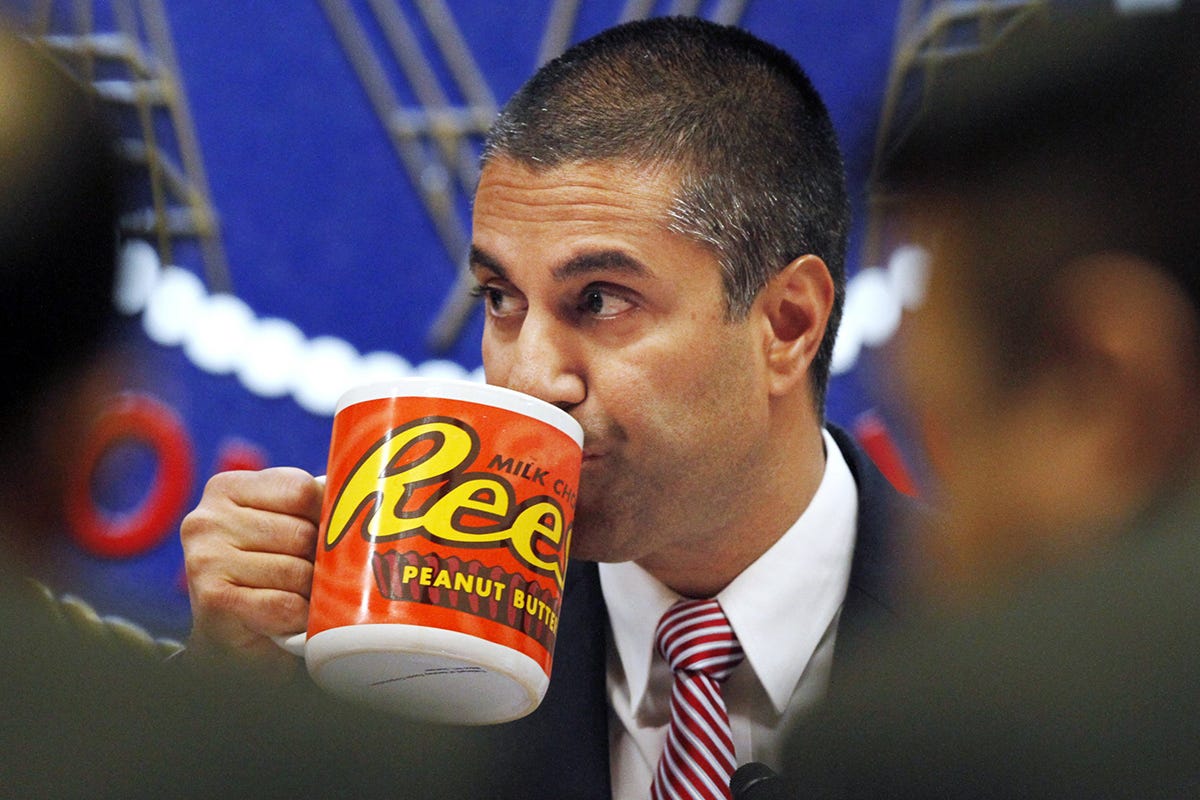Alakazam! The FTC's Magic Wand Makes All Noncompete Clauses Disappear
For its next trick, the all-knowing Federal Trade Commission will make employment language instantly vanish before your very eyes!
In August, I submitted this to a tech publication that was interested in my writing. After sitting on it for two months, they decided not to use it, which was totally lame. Their loss is your gain: rather than let it die, I’m publishing it here for the world to see. Read it. It will make you smarter. You’re welcome.
On Wednesday, August 21st, a federal court ruled that the Federal Trade Commission’s plan to eliminate noncompete agreements for everybody, everywhere, all at once, is a no-go.
For backstory, four months ago, the FTC announced a new rule stating that “existing noncompetes for the vast majority of workers will no longer be enforceable,” with the lone exception of “senior executives.” The rule also stated that all employers are now “banned from entering into or attempting to enforce any new noncompetes, even if they involve senior executives.”
Put simply, in April, the FTC decided that American companies can no longer enforce noncompetes they currently have on the books for any employees except senior executives, and they can’t force any new employees (including senior executives) to enter into noncompetes in the future. They would also have to notify employees currently under a noncompete agreement that their noncompete “will not be enforced against them in the future.”
How and why did this happen in the first place? The FTC’s five unelected career lawyers (AKA “the commissioners”) voted 3-2 to create a “rule” that outlaws a specific type of clause in the employment agreements of 30 million American workers (by its estimation).
Their argument was that noncompetes are “an exploitative practice,” creating captive workers, chained to their desks, who can’t leave the companies they work for—even if they hate them—to go find greener pastures elsewhere with better desks and cooler people.
But along comes a judge in Texas who says: “I’m the law around here! Your ‘final rule’ ain’t final, and I’m banning you from banning noncompetes. Yeehaw!”
Just in time, too: the rule was supposed to take effect 120 days after publication in the federal register (which happened on May 7), meaning, until the party pooper in Texas got involved, ruining the FTC’s plans, “Noncompete Freedom Day” would have been September 4, 2024.
What a shame.
Think of all the exploited employees who otherwise would have been able to scream, “Take this job and shove it!” or at least grab their Ziploc bags of goldfish that have manners, leaving to go start something REAL and FUN and INSPIRING in this god-forsaken business right after Labor Day.
Boo! That would have been epically poetic!
I can hear you now, shouting from behind your computer screen:
“But noncompetes suck! They’re anticompetitive! They’re unfair! Employees only sign them because they have to! They suppress wages! They arbitrarily prevent workers from getting better jobs at better employers!”
And you’re right: those are all objectively true.
But Judge Ada Brown says that rules are rules, except when she rules, overruling the rules. Because? “The FTC exceeded its statutory authority and (ii) the Rule is arbitrary and capricious—and that the Rule would cause irreparable harm.”
So, really, the issue at hand—whether noncompete contracts are good or bad, or exploitative, or enforceable, or not enforceable—isn’t even “the issue” at hand. It’s whether or not the FTC is the proper body to enforce this.
And Sheriff Judge Brown says, “Naw.”
So congratulations to the giant corporations who enjoy using noncompetes to “keep wages low, suppress new ideas, and rob the American economy of dynamism.” You can now give the finger to the FTC and say: “You are not the boss of me!”
In fact, those behemoth monopolies can even say: “Actually, who’s the boss? I am. I even have a mug to prove it.”
This case is eerily similar to another fight against the authority of another three-letter-f-word agency a few years ago.
In 2017, the FCC (by a 3-2 vote) chose to repeal their own rule created in 2015 (also by a 3-2 vote) that created the ironically named “Net Neutrality” rules (which actually allowed the FCC to force ISPs (internet service providers) to prevent certain activities and behaviors in a very non-neutral way).
In the FCC’s decision on Net Neutrality, however, Chairman Ajit Pai essentially argued that the FCC didn’t have the authority to force ISPs not to throttle or block certain internet traffic.
In case you’re getting dizzy following all that, the FCC initially said ISPs were banned from prioritizing some companies and services over others, and then it banned itself from banning the ISPs.
Remember Pai’s ginormous Reese’s peanut butter cup cup? He got an extraordinary amount of airtime in the firestorm of criticism that followed the FCC’s self-cancellation. Politicians did everything they could to vilify him and his decision, stopping just short of actually throwing rotten tomatoes at him.
That whole issue—Net Neutrality, at least as it was defined and argued about then—was remarkably contentious. Yet here we are now, suffering zero ill effects from what some argued at the time would be Y2K all over again. (Actually, it really was Y2K all over again: nothing bad happened).
So, the FCC said it wasn’t allowed to regulate internet content and enforce Net Neutrality rules against private businesses. In contrast, the FTC, however, now says it is allowed to regulate noncompete agreements and enforce antitrust rules against private businesses. But a judge disagrees.
So… now what?
After the FCC let go of being America’s internet traffic cop, a few authoritarian states made their own rules, making the internet ever more byzantine, with certain parts of the country subject to content regulation and others… not so much.
Which is precisely where we are with noncompetes now.
Or, rather, that’s where we were, then weren’t, then are again. Some states already have their own laws against noncompete agreements. States like California, Colorado, Minnesota, and Oklahoma have varying degrees of noncompete prohibition.
What’s interesting, though, is just how harmful the FTC says noncompetes in the remaining states are. It’s so harmful that they claim banning noncompetes would result in:
“More than 8,500 additional new businesses created each year…”
“Higher earnings for workers, with estimated earnings increasing for the average worker by an additional $524 per year…”
“Lower health care costs by up to $194 billion over the next decade…”
“An estimated average increase of 17,000 to 29,000 more patents each year for the next 10 years…”
Who knows exactly how they came up with those figures? Those numbers are all that and a bag of chips. Who could possibly be against that?
Well, the US Chamber of Commerce is, for one. CEO Suzanne Clark said: “This ruling is a big win in the Chamber’s fight against government micromanagement of business decisions. The FTC’s blanket ban on noncompetes is an unlawful power grab that defies the agency’s constitutional and statutory authority and sets a dangerous precedent where the government knows better than the markets.”
The weird thing? Both these positions and statements are probably true at the same time.
The Chamber is right to say that the FTC (not even the Department of Labor, interestingly) is trying to micromanage private decisions between a business and an employee and is interfering in the free market.
But let’s be real: noncompetes also interfere in the free market. There’s very little “free” in a noncompete: taking a job that requires a noncompete is literally signing away your freedom. It’s saying: “By working for you, I agree to give away my rights.”
The FTC is also right to say that “noncompetes often force workers to either stay in a job they want to leave or bear other significant harms and costs, such as being forced to switch to a lower-paying field, being forced to relocate, being forced to leave the workforce altogether, or being forced to defend against expensive litigation.”
Yes. Those are just facts.
When your employer forces you to sign a paper saying you’re not allowed to work for any of their competitors for a period of time after you leave them—whether you quit or they lay you off or fire you—it can easily result in everything they mentioned.
It’s a lot like asking a girl to be your girlfriend, and she says: “Yes. But first you have to agree not to date anybody else for the next two years, whether I break up with you or you break up with me. If you do, I’ll sue you.”
That is a horrible deal. Who would sign up for that anyway?
Job seekers. That’s who. Who is more willing to sign away their rights than someone desperate for a job?
After the 1990s-era mandatory trainings on sexual harassment in the workplace and the 2010s “MeToo” movement(s), one concept all Americans should absolutely be familiar with by now is: “power differential.”
A job-seeker seeking a job and a job-offerer offering a job is probably one of the clearest-cut examples of a real-life power differential. That is to say, for the most part, people who need a job will do, say, or agree to almost anything in order to get a job because—surprise!—they need a job. It’s pretty simple.
Except in a few extreme cases (the AI talent wars right now come to mind), one side has all the power, all the rules, all the money, and all the lawyers. The other side just has the job skills… and the need for an income, often in the form of mouths to feed.
Just imagine how many people have glossed over an employment agreement, looked at a noncompete clause somewhere on page four, and thought, “I don’t understand this, and I don’t like it, but I’ll sign it: my mortgage payment is due next week.”
An employee’s need to put food on the table covers a multitude of sins by an employer.
So, the argument for noncompetes is that they help employers, and the argument against noncompetes is that they can (or do) hurt employees.
But again, some states already have laws against noncompetes. Are those states hurting the businesses within their borders?
The elephant on the list of states that do ban them is California. Home to Silicon Valley, it’s the most staggeringly obvious case to debunk the fearmongering: it’s hard to imagine anybody claiming that its ban on noncompetes is bad for business. Has any CEO of any company in any other state (or country) ever said to himself: “We would relocate to California, except then we wouldn’t be able to enforce noncompetes on our employees?”
That’s preposterous.
There are plenty of reasons not to start a business in California or relocate there, but a law against noncompetes isn’t one of them.
Similarly, has the CEO of any business inside California ever said: “We should relocate to Nevada because then we can force our employees to sign noncompetes!”
Nah.
States are weird like that. In New Jersey, it’s been illegal for drivers to pump their own gas for 75 years. In all 49 remaining states, it is mostly legal (thanks, Oregon) or completely legal (everywhere else) to fill your own tank. Remarkably, this fact never seems to make an impact on anyone asking themselves, “Should I move to New Jersey?”
Similarly, people in New Jersey don’t move to other states solely because they’re dying from the sheer embarrassment of needing a socially awkward gas station attendant every time they need to refuel. (Although, they probably should.)
In the end, what’s probably going to happen in the fight for and against noncompetes is it will end up at the Supreme Court as a constitutional question, and that’s probably good.
Because, right now, we have some states that ban them and some that don’t, and the FTC may— or may not—have the authority to intervene, and it’s all kind of a big catfight between a growing number of federal judges.
One in Florida says the FTC can’t ban them, one in Pennsylvania says they can, and, of course, the new sheriff in town from Texas now also says they can’t.
Does your head hurt yet?

Setting aside any moral or ethical concerns, it would be nice to get clarity on whether noncompetes are simply harmful and annoying or, actually, illegal to enforce. Odds are, it will end up with a SCOTUS ruling similar to another legal case with parallels to the noncompete dilemma.
Students for Fair Admissions v. Harvard actually feels remarkably similar looking back on it now: a handful of states—again, including California most notably—had outlawed using a student’s race as a factor in college admissions.
Many other states didn’t, including California’s antipode, New England, where, up until the Supreme Court slapped them down, race was used enormously as a factor for college admissions, especially in the Ivy League.
Of course, everything has changed now, and racism is illegal again, even on college campuses.
It will be interesting to see the new normal: MIT just released the demographic makeup of their incoming freshmen, and while it only records students’ "self-reported ethnicity,” the ethnic profile for the class of 2028 shows significant changes.
It will be interesting to see if the same happens in a post-noncompete world as well. Odds are, we will see a bunch of quitters celebrating their newfound freedom with higher wages and new ideas, pumping that American economy full of dynamism.
Note: This is part of an experimental new series called “microchips,” where I focus on business, technology, and news about how those affect normal, everyday citizens.
If you’re interested in this, let me know, if not, also please let me know. I have a LOT of interests, and I can’t tell what other people are into. Your feedback is welcome.
You can stay a subscriber of the “normal” Micron newsletter, and not Microchips, or vise-versa… I think. I’m still trying to figure it all out.








I like microchips! Helpful to have a clear and humorous perspective on these things. “Explain it to me like I’m five.”